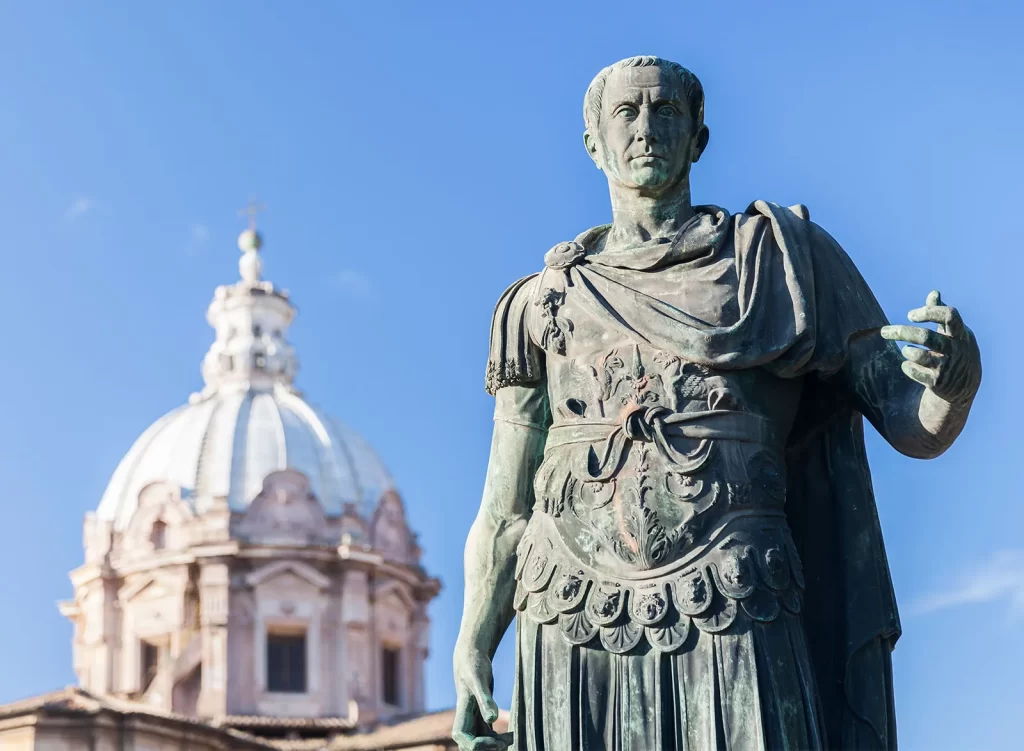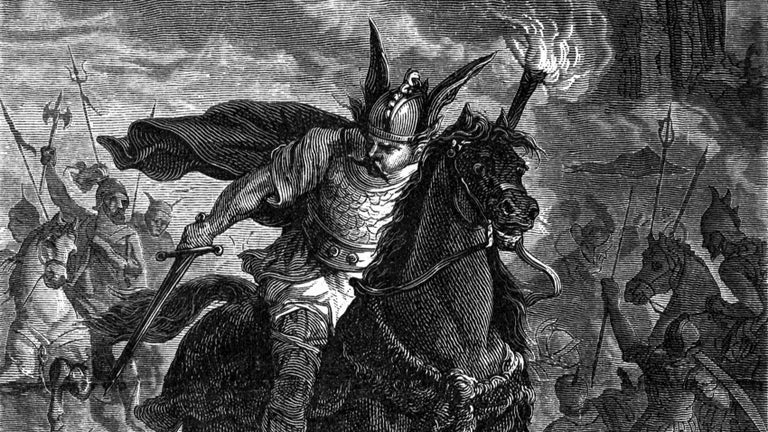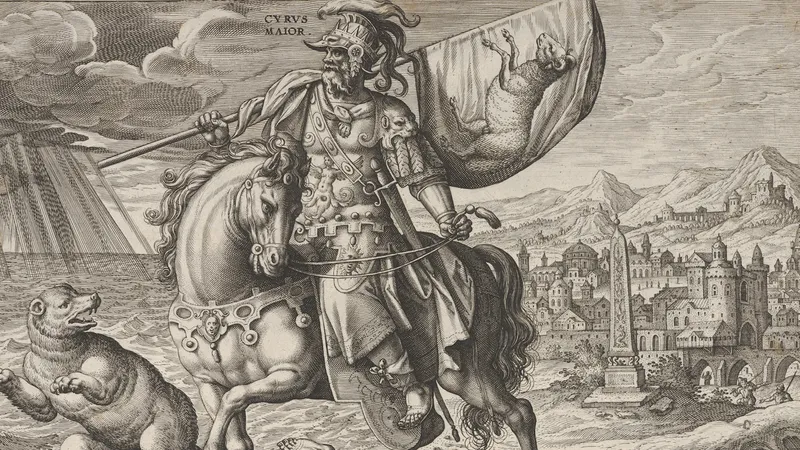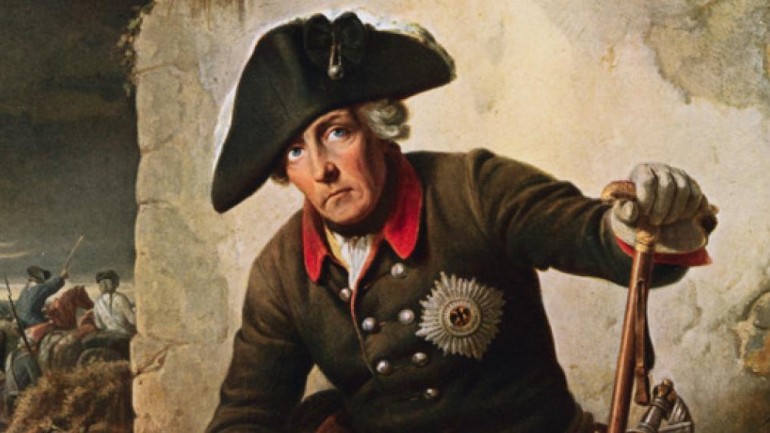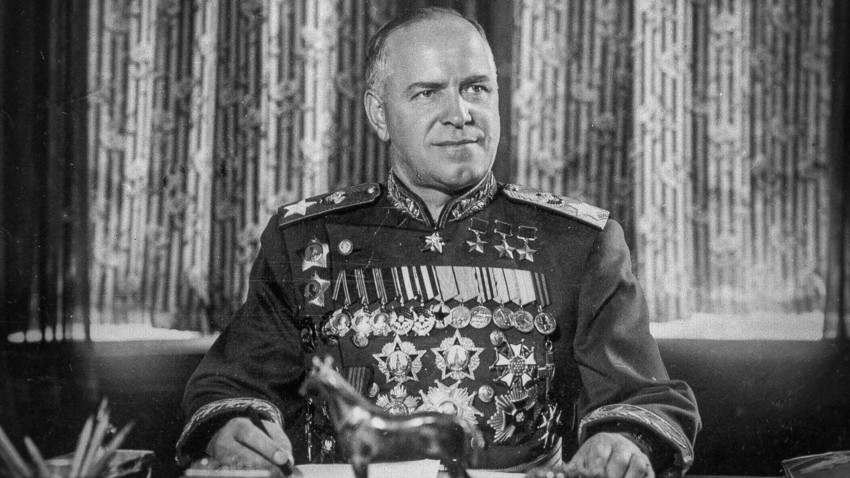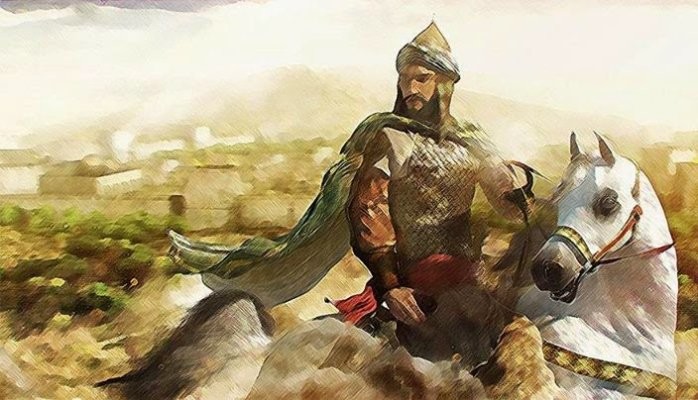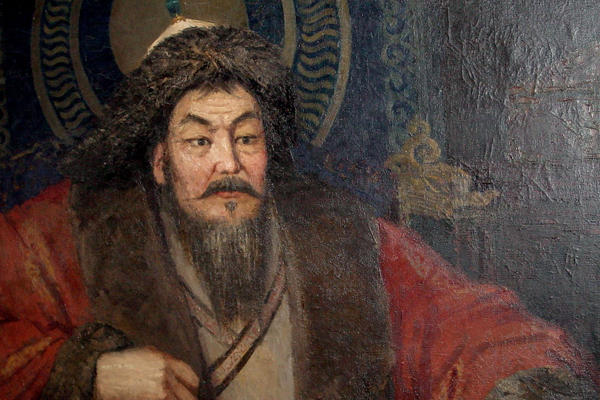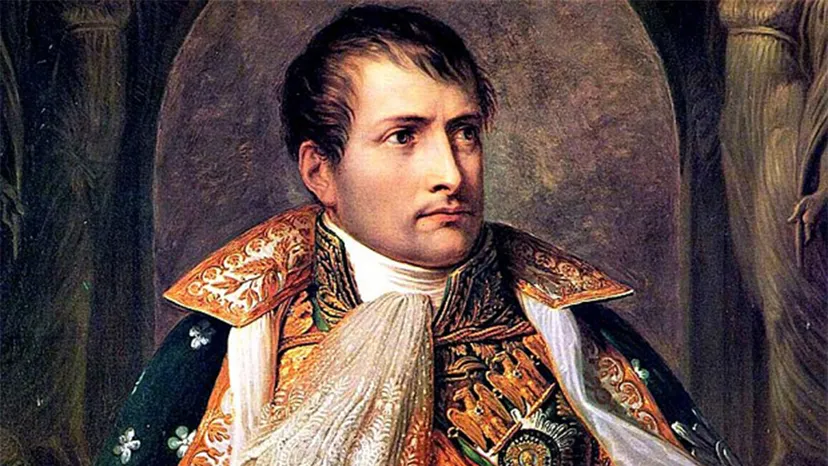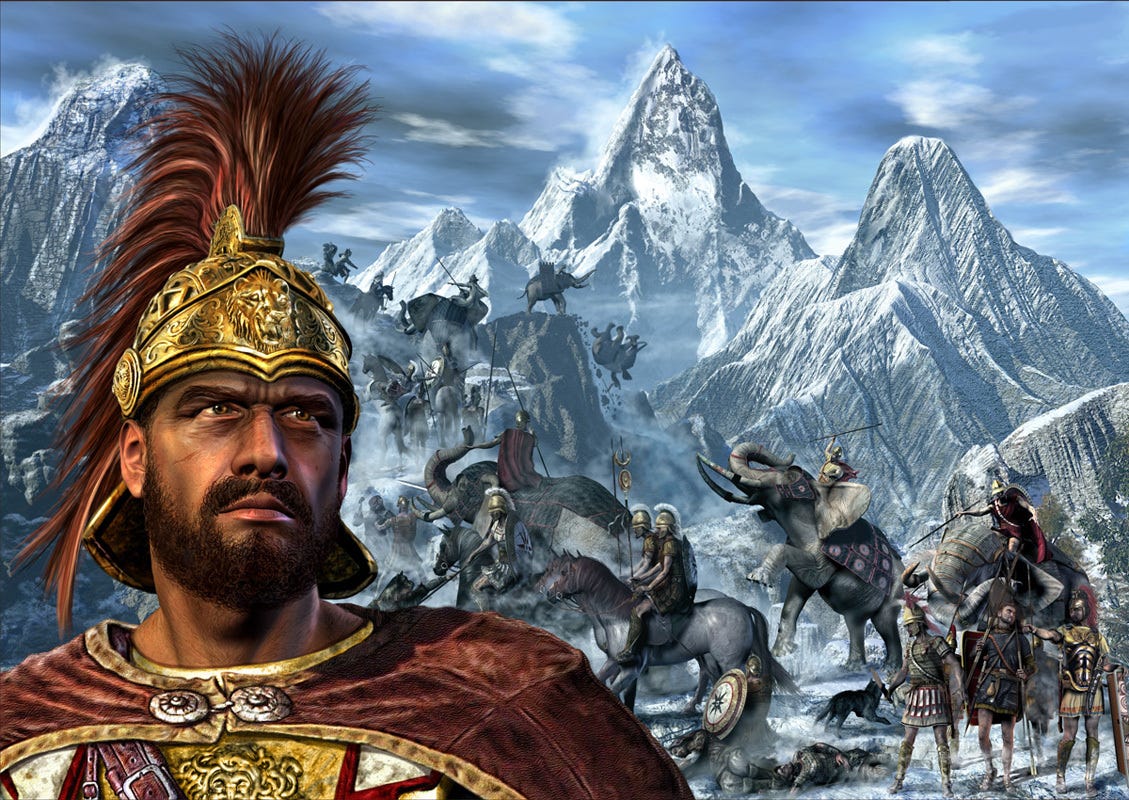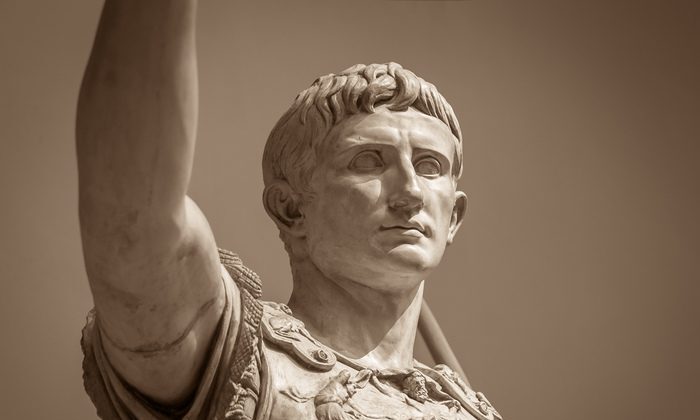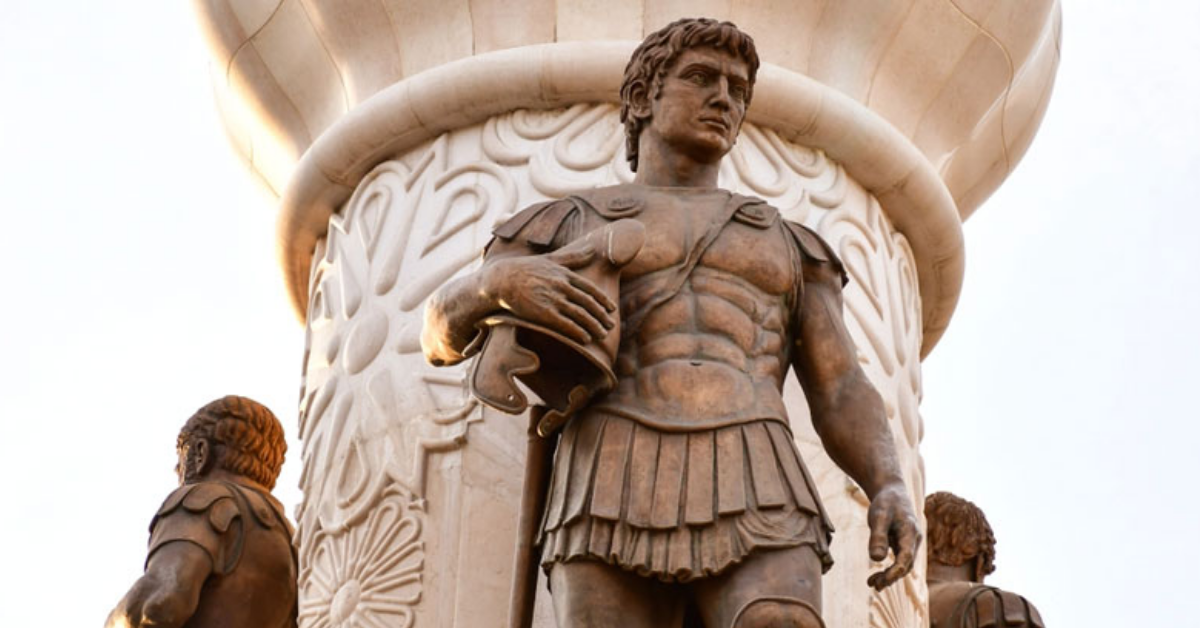The position of a military general is one of the most important places in history, many occupants of the position have been responsible for playing pivotal roles throughout history, influencing the course of events and shaping the destinies of nations. They also often have multifaceted roles encompassing strategic thinking, tactical proficiency, leadership, and often a broader influence on political and cultural realms. History is comprised of numerous Military generals, who stand out from the rest, thanks to their brilliance ingenuity, and courage. We have however compiled a list of the top 10 greatest military generals in history.
10. Attila the Hun
Attila the Hun, also known as Attila was a powerful and fearsome leader of the Huns, a nomadic Central Asian people who played a significant role in the history of Europe and the Roman Empire during the 5th century. Attila ruled the Hunnic Empire from 434 to 453 AD. He is often remembered as one of the most ruthless and greatest military generals in history.
Attila led his people in various military campaigns, and his invasions into the Eastern and Western Roman Empires earned him the nickname “Scourge of God.” In 452 AD he invaded Italy and almost captured Rome itself. However, he decided to withdraw his troops after successful negotiations with the Bishop of Rome, Leo I.
Attila united the tribes of Huns, Ostrogoths, and Alans to form a strong fighting force, ransacking about 70 cities. However, he died unexpectedly in 453 AD under mysterious circumstances, possibly as a result of a severe nosebleed on his wedding night. Attila’s death marked the decline of the Hunnic Empire, as his successors were unable to maintain the unity and power he had wielded.
9. Cyrus the Great
Cyrus the Great, also known as Cyrus II, was the founder of the Achaemenid Empire, the first Persian Empire. He ruled from 559 to 530 BCE. He is widely regarded as one of history’s most outstanding and benevolent rulers for his policies of tolerance and one of the greatest military generals in history, for his notable military campaigns.
After becoming the king of Anshan, a region in Persia, Cyrus managed to unite the various Persian tribes under his leadership. He then went on to conquer the Median Empire in 550 BCE, followed by the overthrow of the powerful Babylonian Empire in 539 BCE. After conquering the Median Empire, Cyrus led the Achaemenids to conquer the Lydian Empire and eventually the Neo-Babylonian Empire. He also led an expedition into Central Asia, bringing every nation into subjugation.
Cyrus’s approach to governance was marked by a policy of tolerance and respect for the customs and religions of the diverse people within his empire. He is also known for instituting the Cyrus Cylinder, one of the earliest statements of human rights, emphasizing the importance of religious freedom and the fair treatment of conquered peoples. He however died in 530 BCE, and his son Cambyses II succeeded him as ruler of the Achaemenid Empire.
8. Frederick the Great
Frederick the Great, also known as Frederick II, was a highly influential and enlightened monarch who ruled the Kingdom of Prussia from 1740 to 1786. He is often remembered for his military prowess, conquest, administrative reforms, and patronage of the arts and philosophy. Under his rule, the Prussian state successfully expanded and strengthened, and became a significant European power
Fredrick’s most significant accomplishments include his military successes in the Silesian wars, his reorganization of the Prussian Army, and the First Partition of Poland. He also played a key role in the War of Austrian Succession (1740-1748) and the Seven Years’ War (1756-1763). Frederick was the last Hohenzollern monarch titled King in Prussia, declaring himself King of Prussia after annexing Royal Prussia from the Polish–Lithuanian Commonwealth in 1772.
In addition to his military achievements, Frederick was a proponent of the Enlightenment, fostering cultural and intellectual developments within his kingdom. He corresponded with prominent Enlightenment thinkers such as Voltaire, and he implemented various reforms to modernize Prussia. These reforms included improvements to the legal system, religious tolerance, and agricultural advancements. He however died on August 17, 1786, and his nephew, Frederick William II, succeeded him as the King of Prussia.
7. Georgy Zhukov
Georgy Zhukov, also spelled Zhukov, was a Soviet military commander and one of the most prominent figures in the Red Army during World War II. He is widely considered one of the greatest military generals in history, and his tactical brilliance and leadership skills were instrumental in the defeat of Germany during the Second World War.
Zhukov was conscripted into the Imperial Russian Army and fought in World War I. He served in the Red Army during the Russian Civil War. Gradually rising through the ranks, by 1939 Zhukov had been given command of an army group and won a decisive battle over Japanese forces at Khalkhin Gol, for which he won the first of his four Hero of the Soviet Union awards.
Following the German invasion of the Soviet Union, Zhukov organized the defense of Leningrad, Moscow, and Stalingrad. He also participated in planning several major offensive battles such as the Battle of Kursk, Operation Bagration, and the Battle of Berlin, which resulted in the defeat of Nazi Germany, and the end of the war in Europe. Zhukov died in 1974 and is considered one of the greatest Russian and Soviet military leaders of all time.
6. Khalid ibn al-Walid
Khalid ibn al-Walid was a military commander who lived in the 7th century. He is considered one of the greatest military generals in history, with an almost unparalleled record of victories. He played a crucial role in the expansion of the Islamic Caliphate during the 7th century. He played a crucial role in the Battle of Mu’tah (629 CE) against the Byzantine Empire and later in the decisive Battle of Yarmouk (636 CE) in which the Muslim forces, under his command, defeated the Byzantine army.
Khalid belonged to the prominent Meccan tribe of Quraysh. Before embracing Islam, he was a fierce opponent of the Prophet Muhammad and the early Muslim community. However, after the Conquest of Mecca in 630 CE, he embraced Islam, and his military prowess soon became a valuable asset to the Islamic forces.
Khalid is perhaps best known for his military leadership in various battles, including the Battle of Uhud, the Battle of the Trench (also known as the Battle of the Confederates), and the Conquest of Mecca. However, his most notable achievements occurred during the early Islamic conquests outside the Arabian Peninsula.
Read More:
- Top 10 Largest African Empires In History
- 10 Most Brutal African Presidents In History
- Top 10 Most Evil Dictators In History.
5. Genghis Khan
Genghis Khan, the founder of the Mongol Empire, was one of the largest contiguous empires in history, occupies the fifth spot among the greatest military generals in history. He played a key role in unifying the Mongol tribes and leading them to conquer a vast territory across Asia and Europe, becoming the first Great Khan of the Mongol Empire.
Genghis Khan was a brilliant military strategist. He led the Mongol armies in a series of successful campaigns, conquering a large portion of Central Asia, China, the Middle East, and parts of Eastern Europe. His military tactics, including the effective use of cavalry and psychological warfare, contributed to the rapid expansion of the Mongol Empire.
Although Genghis Khan is often viewed and portrayed as a ruthless conqueror, he is also recognized for his military brilliance, administrative innovations, and the role his empire played in facilitating cross-cultural interactions during the medieval period.
4. Napoleon Bonaparte
Napoleon Bonaparte, often known simply as Napoleon, was a French military and political leader who rose to prominence during the French Revolution. He is considered by many one of the greatest military generals in history, for his tactical brilliance and for leading many successful campaigns during the Revolutionary and Napoleonic Wars.
After rapidly climbing the ranks in the French military and a successful military campaign in Egypt, Napoleon returned to France and staged a coup d’état, overthrowing the French government and establishing himself as First Consul. In 1804, he declared himself Emperor of the French, beginning a massive territorial expansion and an imperial conquest of other countries.
Napoleon’s military campaigns included victories like Austerlitz (1805) and Jena-Auerstedt (1806), but he faced setbacks in the Peninsular War in Spain and the disastrous invasion of Russia in 1812. After facing defeat in the Battle of Leipzig, and at the Battle of Waterloo, Napoleon abdicated in 1815 and was exiled to the island of Saint Helena in the South Atlantic, where he died in 1821.
3. Hannibal Barca
Hannibal Barca was a Carthaginian general and statesman, popularly known for commanding the forces of Carthage in their battle against the Roman Republic during the Second Punic War. He is considered by many one of the greatest military tacticians and Military generals in history, most notably for crossing the Alps with his army, including war elephants, to invade Italy.
Hannibal during his consistent battle against the Roman Empire, became prominent for staging one of the most legendary attacks in the history of military warfare. He won several notable victories against the Roman legions in Italy, including the battles of Trebia (218 BCE), Lake Trasimene (217 BCE), and Cannae (216 BCE).
In 202 BCE, Hannibal was defeated at the Battle of Zama in North Africa, leaving war fare for politics. However, due to Roman pressure, he went into exile, wandering through various regions, including the Seleucid Empire and Bithynia. Fearing capture by the Romans, Hannibal eventually took his own life in 183 BCE. Hannibal tactics against the Roman Empire were so impressive that they are still studied and used in the present day.
2. Julius Caesar
Prominent Roman military general, Julius Caesar takes the second spot among the greatest Military generals in history. He is best known for his military campaigns in the Gallic Wars and the subsequent civil war. Caeser is also a statesman and dictator who played a critical role in the events that led to the demise of the Roman Republic and the rise of the Roman Empire.
Julius Caesar began his military career in 88 BC, with the military campaign of consuls Gaius Marius and Lucius Cornelius Sulla. he however rose through the military ranks to became a commander who commanded a sizable legion. Notable among these were his campaigns in Gaul from 58 to 50 BCE, where he greatly expanded Roman territory.
After defeating his political rival Pompey in a civil war, Julius Caesar subsequently became a dictator. As a ruler of Rome, He implemented a series of political and social reforms, including the Julian Calendar, which served as the basis for the modern calendar. He was however assassinated by a group of senators led by Brutus and Cassius on the Ides of March (15 March) 44 BC.
1. Alexander the Great
Alexander the Great was a king of the ancient Greek kingdom of Macedon. He ascended the throne in 336 BC at the age of 20 and spent most of his ruling years conducting a lengthy military campaign throughout Western Asia and Egypt. By the age of 30, he had created one of the largest empires in history, stretching from Greece to northwestern India. He was undefeated in battle and is widely considered to be the greatest military general in history.
Alexander began his military conquests in 334 BCE when he led the Macedonian army against the Persian Empire, then ruled by Darius III. He won a series of major battles, including the Battle of Issus (333 BCE) and the Battle of Gaugamela (331 BCE), which resulted in the fall of the Persian Empire. He further continued his conquests in Egypt, where he founded the city of Alexandria, which became a major center of commerce and learning, and eventually India.
Alexander’s conquests took a toll on his health and his relationship with his army. He died in Babylon in 323 BCE at the age of 32. The exact cause of his death remains uncertain, with theories ranging from illness to poison. Despite his relatively short life, Alexander’s impact on history was immense. His conquests spread Greek culture and Hellenistic influence across the known world, creating what is known as the Hellenistic period.
